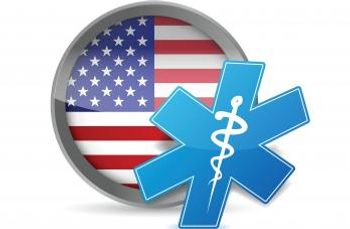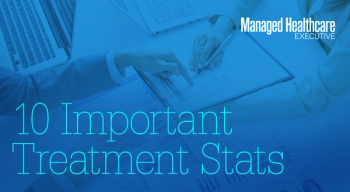
Cancer is one of the top deadliest diseases in the world and can be difficult to treat. We want to hear from you about your current challenges and what you think about future prospects in cancer therapy.

Cancer is one of the top deadliest diseases in the world and can be difficult to treat. We want to hear from you about your current challenges and what you think about future prospects in cancer therapy.

Cancer survivorship expert Barbara Tofani, RN, MSN, shares how Hunterdon Regional Cancer Center’s program in New Jersey helps to better coordinate and deliver cancer care.

Combat stress, PTSD, depression, anxiety, and substance use disorder are genuine, serious and treatable medical conditions. Here’s how one operator is tackling all of them.

To help build a stronger community support system and strategy around mental health, here are three tips for managed care organizations.

A HealthMine survey has interesting results about Medicare Advantage members’ knowledge about virtual care. Here’s six ways to reach them.

Reasons organizations have traditionally had for not sharing data with each other are breaking down, opening a new type of conversation between payers and providers. Here’s how.

Increasingly, healthcare organizations are relying on information technology (IT) solutions to increase the reach-and efficacy-of healthcare. Here’s how technology can help mental health, too.

Suicide rates are rising-but healthcare organizations can help facilitate their suicide prevention efforts by relying on the right care coordination teams.

Here are four other things that MCOs should know about a first-of-its kind targeted RNA-based therapy to treat a rare disease.

Measuring success in the value-based care era requires establishing a baseline and implementing new technology tools.

Medical malpractice companies partner to provide a detailed analysis of breast cancer medical malpractice claims. The findings may surprise you.

FDA clears first-of-its-kind gene therapy for rare disease.

While FDA approved the first generic version of epinephrine (EpiPen and EpiPen Jr, Mylan), the new product is not yet on the market.

The importance of the retail setting as a hub for health engagement is increasing. Here’s three things you need to know about it.

A new study may offer healthcare organizations a new way to close gaps in care while simultaneously engaging the patient as a partner in care.

Basket trials are designed to test therapies that target a specific genetic mutation found in the tumor, regardless of tumor histology. This emerging trend raises a number of key questions for the industry.

You can’t make every patient satisfied every time, but it’s worth a shot. Here are 10 simple strategies for providers to consider.

New research from Prophet shares five key shifts healthcare organizations can make in the move toward consumer-centricity.

A new survey has shocking results about consumer knowledge of health insurance.

Pharmaceutical industry observers are concerned about some of the drugs that were slashed from Express Scripts’ 2019 National Preferred Formulary.

COPD specialists have found that in-hospital and prompt post-discharge efforts can lessen costs-and the likelihood of hospital readmission. Here are three successful strategies.

COPD strikes 6.4% of Americans. While smoking is a big contributor, these seven other risk factors deserve more attention.

The first medication approved by FDA as part of an expedited generic drug program is one that has been in short supply.

Healthcare executives must understand mental health laws so they can do the right thing by their patients-and protect their bottom line.

Mental and substance abuse disorders account for a large chunk of America’s healthcare costs. Find out which of these diseases are the most costly.

If it's true that a picture is worth a thousand words, the same can be said for numbers. For any healthcare executive, a look at relevant statistics can be revealing. Here are some of the top stats to know.

Although the act would not prohibit manufacturers from increasing prices, it could change the pricing landscape. Here’s why.

Artificial intelligence (AI) in healthcare is no longer a futuristic idea. Organizations are benefiting-on administrative and clinical levels-from practical adoptions that make cost savings and better patient care a reality.

When you are at the top or close to the peak in the leadership hierarchy, sometimes it’s hard to get proper advice. After all, with rank comes power, and many of your colleagues may be unwilling to speak the truth because they are protecting their own interests.